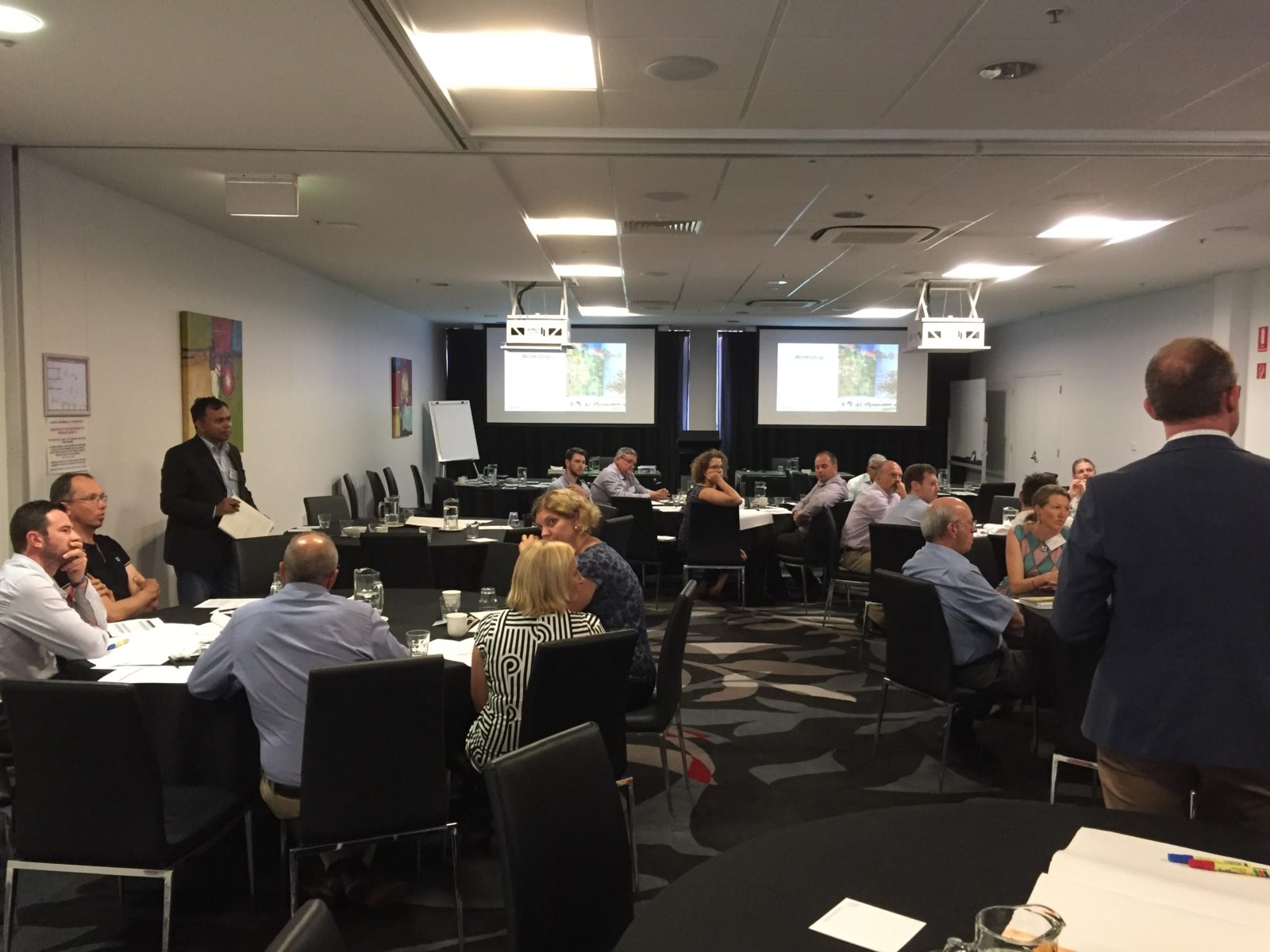South Australian water practitioners tell us how they can use our benefit-cost tool
Over 50 South Australian water sensitive urban design (WSUD) practitioners recently took full advantage of their opportunity to help develop an economic evaluation framework. This framework will identify and quantify economic, environmental and community values of investments in water sensitive practices and systems. Water Sensitive SA together with University of SA School of Commerce hosted a seminar and workshop in Adelaide on 5 February, which updated attendees about the urban water economics tools and guidelines emerging from the CRCWSC to date.
Specifically, attendees learnt about the new tool for benefit-cost analysis of water-related projects and policies that the CRCWSC is developing. Ultimately, private and public sector users will be able to apply the tool to business case development and decision making, to achieve water sensitive, liveable and resilient cities.

Importantly, the workshop gave SA practitioners the opportunity to provide feedback on how the tool can be used in South Australia. Local government representatives, for example, suggested the tool would be very useful for preparing Stormwater Management Plans, which increasingly focus on water sensitive outcomes, and less on simple flood management. Attendees also recognised the benefits of applying the tool more generally, such as when:
- liaising with the Department of Treasury and Finance about funding
- considering options for scaling infrastructure up or down, or
- assessing how incorporating water sensitive urban design into a new development may benefit health outcomes or influence property values.
Attendees also gave their thoughts on operationalising the tool. They need help in understanding how to transfer benefits from one context to another, for example, and would look to the CRCWSC to help build this capacity. They also need help to better understand the monetised values of the physical and mental health benefits of green infrastructure and water sensitive urban design. They suggested developing examples of business cases of projects at a range of scales, including ‘default’ benefit transfer values for South Australia.
You can also hear from Jeff Connor, David Pannell and Sayed Iftekhar , who explain why the tool is important and the work we’ve done so far.